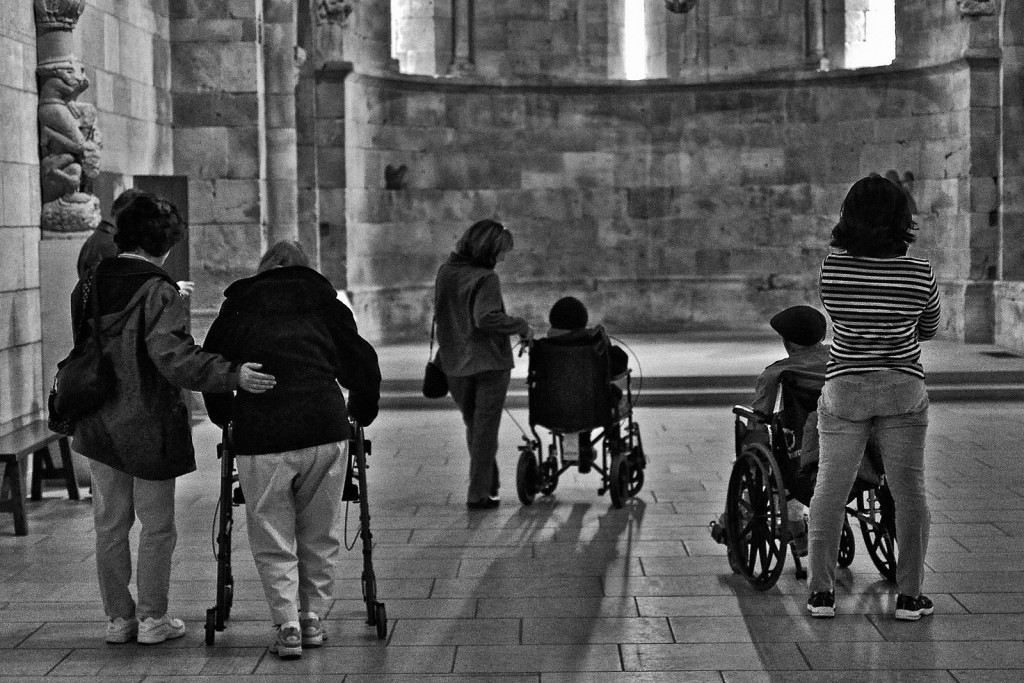An aging person is susceptible to health issues, including cognitive problems. According to the Alzheimer’s Association, about 1.75 million Americans aged 65 to 74 years old have Alzheimer’s dementia, one of the four primary types of neurodegenerative dementia.
Memory gaps and mobility issues significantly impact how a patient thinks and acts. It’s possible to take care of these patients at home. However, as a degenerative disease, it can be challenging for untrained caregivers to assist seniors with their daily needs and self-care. If it becomes too difficult, families can choose from among the top memory care options within their state of residence.
Asking others to take care of a senior family member may not be attractive to most. Understand how memory care facilities work and the signs that your loved one may need professional care to make an informed decision.
Memory Care Facilities
Elderly patients with neurological conditions are often brought to an assisted-living facility or a nursing home. Residents of the former are often relatively mobile, while patients in a nursing home require more intervention and assistance. These facilities may also have a dedicated memory care facility to cater to patients with dementia symptoms. There are also stand-alone memory care units.
From staff composition to physical layout and activity programming, memory care facilities are designed to provide specialized care to people with cognitive difficulties.
5 Signs That Your Loved One Needs Memory Care
Seniors with cognitive deficiencies aren’t in the best position to decide for themselves. Additionally, it can be challenging to spot the onset of such a condition without a medical or nursing background. Thus, the first step is to have your family member evaluated by a neurologist and other related medical specialists.

Watch out for these signs and circumstances involving the patient and caregiver.
When A Loved One Starts To Disregard Safety
An older person may also do things without regard for safety. In some cases, they might develop bruises and fractures because of mobility issues. These aren’t deliberate, as confusion and being disoriented are the primary symptoms of dementia and Alzheimer’s disease.
- Wandering: Most dementia patients tend to wander. Because of confusion, they may walk and reach neighboring areas, yet don’t know how to get back home. Doing so can expose them to specific dangers, including road accidents and harsh weather conditions. Memory care facilities often have secure layouts and heightened security measures to prevent such incidents.
- Sundowning: This term refers to a confused state that patients typically experience in the late afternoon and evening. Besides disorientation, a patient can also experience aggression or anxiety. Sundowning can negatively impact a caregiver and the patient’s family, especially if it happens too often.
It’s also common for patients with neurological diseases to express their thoughts and communicate. If they find themselves in such difficult situations, they might be unable to call bystanders and other people for help. In its more advanced stages, sufferers may be more inclined to make poor judgments, making them more vulnerable to criminals and fraudsters.
If They Display Noticeable Changes In Behavior
As mentioned above, a neurological disease may impact how an affected individual processes information, affecting their mood. If you notice that your aging parent can no longer manage their obligations, it may be a sign that they’re going through a difficult time because of their condition. Previously calm and composed, you may notice your loved one becoming easily anxious.
It’s also not uncommon to see a loved one acting bizarrely. For instance, a previously fun and adventurous patient may become scared of doing little things. If a senior member of the family loses motivation or no longer enjoys doing the things they used to love, it can be a solid signal to move to a memory care facility.
Self-Care Takes A Backseat
Becoming forgetful is one of the most glaring symptoms of dementia. Some sufferers may forget to take care of themselves and stop taking a bath or brushing their teeth. In some cases, they may become hostile towards caregivers who wish to help them with these essential tasks. If you notice your loved one living in poor condition, where they can no longer perform self-care and handle their affairs and obligations, consider transferring your loved one to a memory care facility.
Their Physical Health Is Suffering
Because they can no longer take care of themselves, sufferers may forget to eat on time, and, thus, experience weight loss. Disorientation may cause them to burn their food while cooking or dislike food taste altogether.
In addition, your loved one may forget to take their medications to improve some of their health problems. Sleep deprivation may also take a heavy toll on your loved one with cognitive issues, negatively impacting their health. They may also forget their medical appointments or misplace their medicines and valuable possessions. Such occurrences can pose risks, especially if you have children at home.

When It Becomes Too Overwhelming For The Caregiver
Providing proper care to a person with Alzheimer’s or other forms of dementia can be too challenging. This fact holds even if the primary caregiver is a trained healthcare professional, such as an on-call nurse. More so when the caregiver, such as the spouse, also suffers from specific health issues. Too much stress can impact a caregiver’s overall wellbeing. When not correctly handled, excessive stress can manifest in different ways.
When family members and professional caregivers become too overwhelmed with assisting a patient, it’s a glaring sign that home care may no longer be feasible. Remember that the caregiver’s mental, physical, and emotional stability is just as important as the patient’s.
Choosing The Right Facility
When you’re ready to choose a suitable facility, exercise due diligence by visiting the establishment and asking essential questions. Check all available amenities, staff behavior, skills, and qualifications, alongside the memory care home’s accreditation and reputation.
Conclusion
Without a proper medical background, it can be hard to spot the signs that an elderly family member needs to be taken to a memory care facility. Your best option is to set an appointment with a geriatrics physician or neurologist for professional advice.
Safety and wellbeing—the patient’s and yours—are crucial factors when deciding whether or not to take your loved one to a memory care facility. Suppose it becomes too dangerous for a sufferer to stay in their current home or environment. In that case, it may be necessary to seek the services of professionals in a memory care unit.
